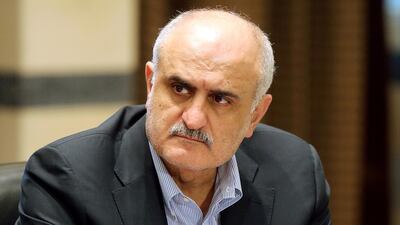Lebanon's government on Wednesday missed another self-imposed deadline to agree on the 2019 draft budget, scheduling a final session for Friday.
The government said its enormous deficit had been brought down slightly and might yet be reduced further.
Finance Minister Ali Khalil warned that every day the budget was not passed there was "a cost to market confidence".
The coalition Cabinet has met daily to debate the budget, which is regarded as a critical test of its will to enact urgent reforms, with leaders warning of catastrophe if there is no action.
Information Minister Jamal Jarrah said the projected deficit had been trimmed to 7.5 per cent of gross domestic product from the previously announced 7.6 per cent. The gap was 11.2 per cent last year.
Lebanon has one of the world's heaviest public debt burdens, at 150 per cent of GDP.
Final agreement has been complicated by a dispute between Mr Khalil and Foreign Minister Gebran Bassil.
Mr Khalil said on Tuesday that the budget was complete but Al-Akhbar newspaper quoted Mr Bassil as saying his party was not satisfied with the draft and a deficit of 7 per cent could be easily achieved.
Mr Jarrah denied reports of clashes in Cabinet, saying "a calm, objective and bold discussion" had taken place.
On Wednesday, Mr Khalil said on Twitter: "We want to get approval for this budget. Unfortunately it took us a long time but the priority is to pass the budget because each day has a cost to market confidence."
Prime Minister Saad Al Hariri had given a 48-hour window for discussion of new ideas tabled by ministers at Wednesday's session, Mr Jarrah said.
"The session on Friday will God willing be the final one," he said.
"Why don't we give ourselves 48 hours? If the deficit can be brought down from 7.5 to 7.4 or 7.3 per cent, then why not?"

